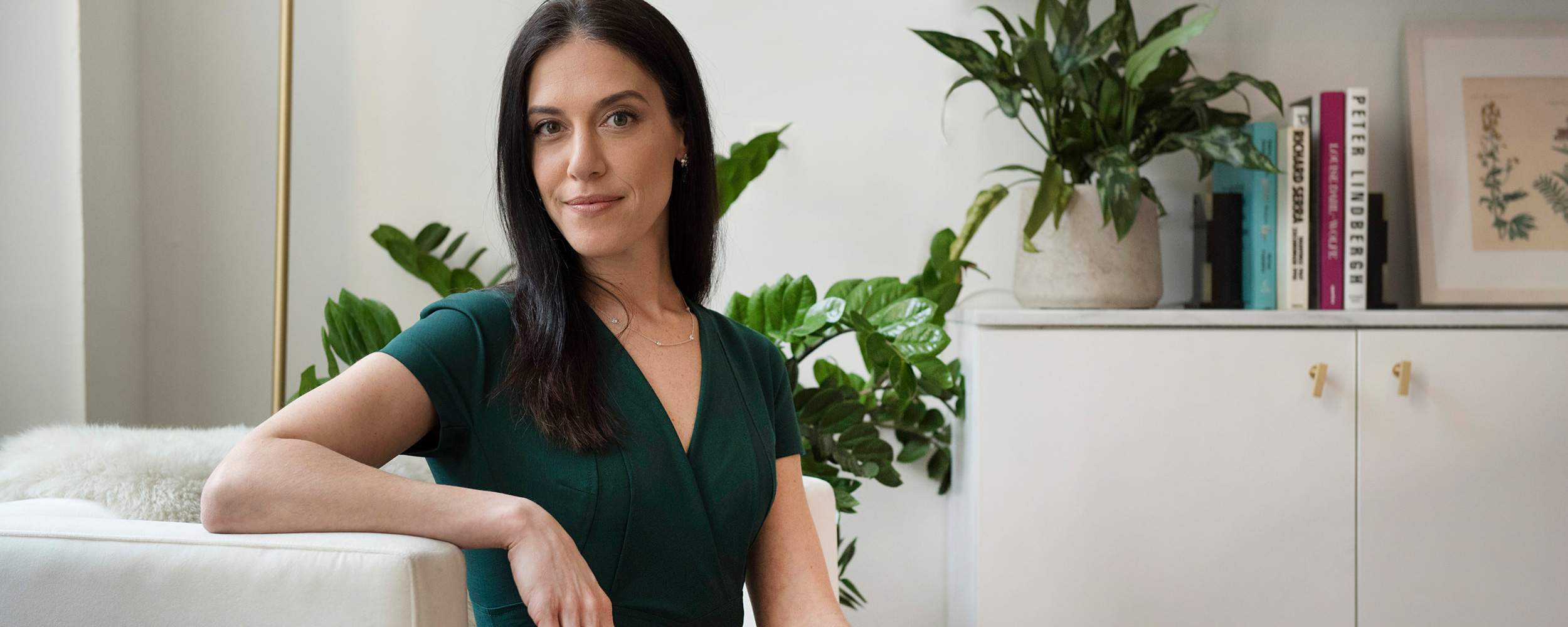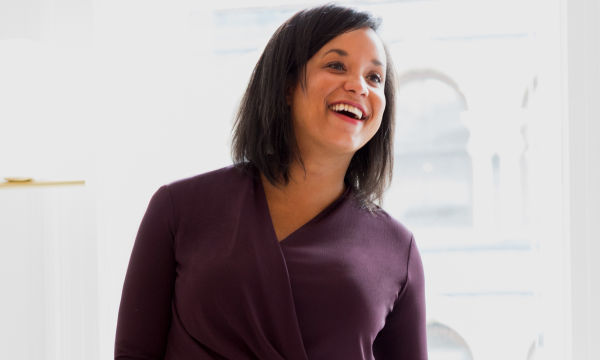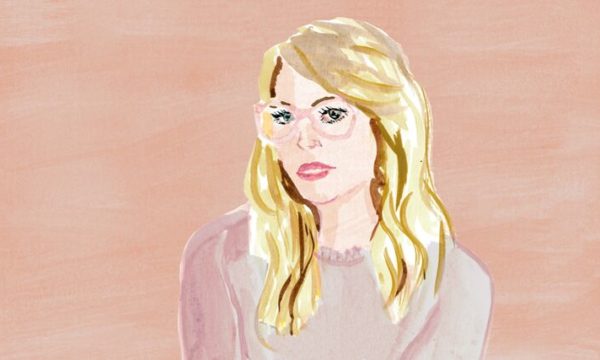Amanda Steinberg on Money, Burnout, and Learning Your Worth
May 06, 2017 | Filed in: Woman of the Week
In her twenties, Amanda Steinberg was a successful computer programmer earning six figures, but her personal life felt rudderless—she was exhausted, unhappy in her marriage, and couldn’t keep up with the mounting expenses of her family’s lifestyle. In 2009, she launched DailyWorth, a newsletter offering financial advice to women (her initial goal: to help readers avoid the mistakes she’d made). Today, DailyWorth reaches over a million subscribers; in February, Amanda released her first book, Worth It: Your Life, Your Money, Your Terms. She recently paid a visit to MM’s showroom to talk turning points, financial autonomy, and why she’s not afraid of burnout anymore.
I’VE ALWAYS BEEN MOTIVATED by social impact, and had an idealistic streak. When I was young, I wanted to go into politics—that was my aspiration throughout high school. Then, during my sophomore year of college, I worked for Ric Burns, the documentary film producer, which exposed me to this whole new level of sophistication and New York City culture. Everything about that job was shiny and new and fascinating. From there, I decided to major in urban studies, because I’m interested in what makes society work better.
I WAS RAISED BY A SINGLE MOM who told me not to depend on anyone financially. She’s been a computer programmer since 1964, and she started teaching me to code when I was five. I didn’t have aspirations to work in that field, but when I was in my senior year at Columbia, the internet boom began—it was 1999, and I had these highly coveted technical skills. I was also very ambitious. Before I even graduated, I started working for a guy in Boston who was running a web consultancy. I was a kid, but I convinced him to let me run his New York operation, and I had 15 people working for me by the time I was 23. The internet was blowing up by then, so it wasn’t hard to grow.
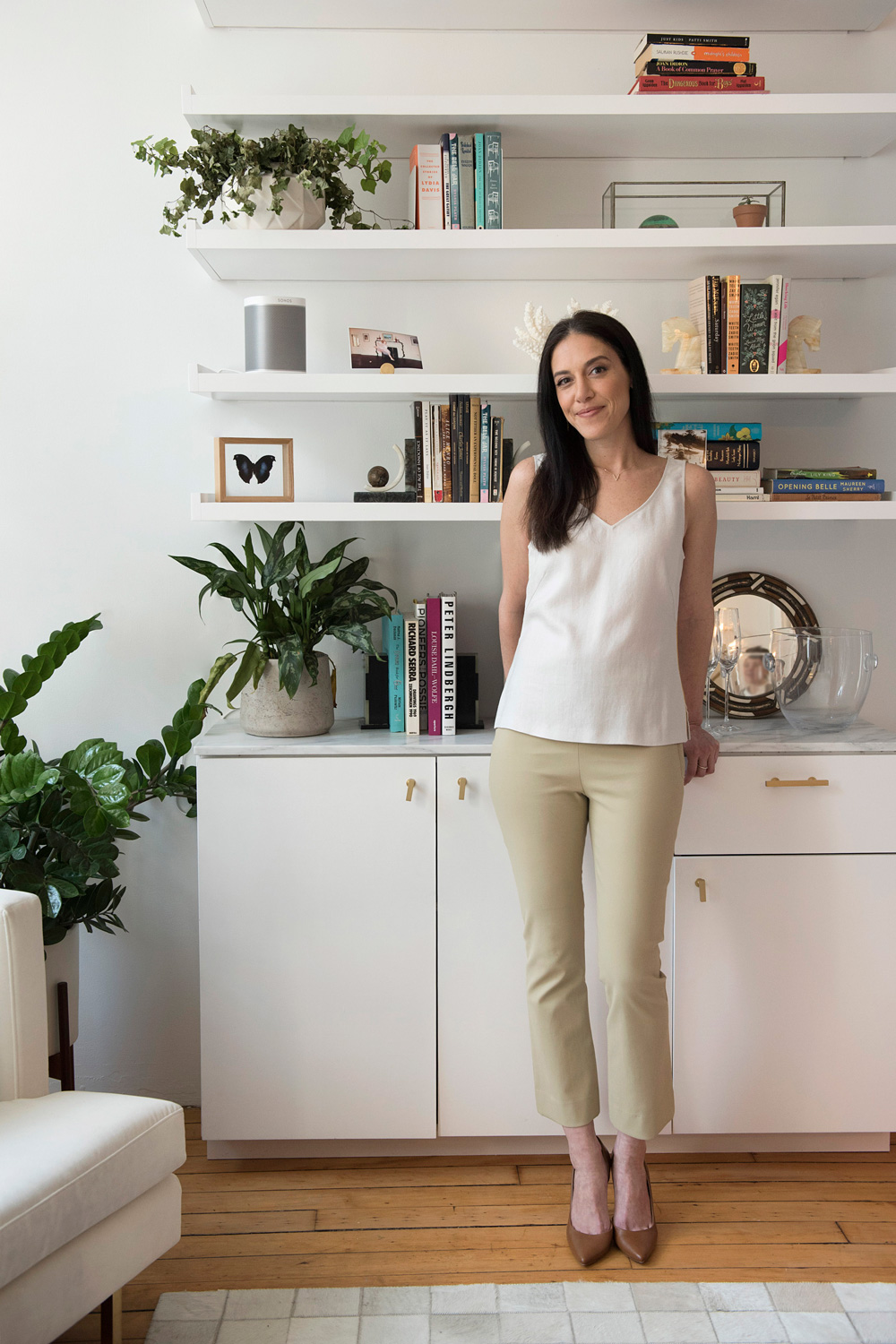
Amanda wears the Crawford top in birch and the Oshima pant in dune grass.
BEING SUCCESSFUL AT AN EARLY AGE can be a little bit freaky, or at least it was for me. I was like, “Oh my god, I’m going to be alone and childless with cats for the rest of my life!” Which is a ridiculous fear to have when you’re in your early twenties. Still, I decided that I had to become more “normal,” so I started online dating and attending Shabbat dinners, even though I’m not religious at all. I wasn’t paying attention to my genuine interests—instead, I was trying to mold myself into what I saw happening around me, which was my friends getting married and having babies.
YOU CAN DO ALL THE THINGS that society tells you to do and still be miserable. I would know: I got married at 25, had kids, and I was living out both sides of my brain—the ambitious entrepreneur, and also the good wife hosting dinner parties. I was running ragged because it’s very hard to do both of those things at the same time. They’re both full-time jobs.
IT ALL CAME CRASHING DOWN when I was 29. It was 2008, and we were living in this gorgeous old stone house in Philadelphia, and I got a tax bill for $60,000 that I didn’t see coming at all. Despite my mother’s insistence that I be financially self-sufficient, I went close to $100,000 in debt and realized I was living a life that didn’t make any sense to me. I was totally burned out. That September, I was seven months pregnant, and some friends were running a workshop about women and money in New York. I waddled into the city, took this two-hour session, and it hit me like a bat over the head: Money was my blind spot. That’s the moment when I knew I had to start DailyWorth—I realized that money was keeping millions of women in this dependent place, including me.
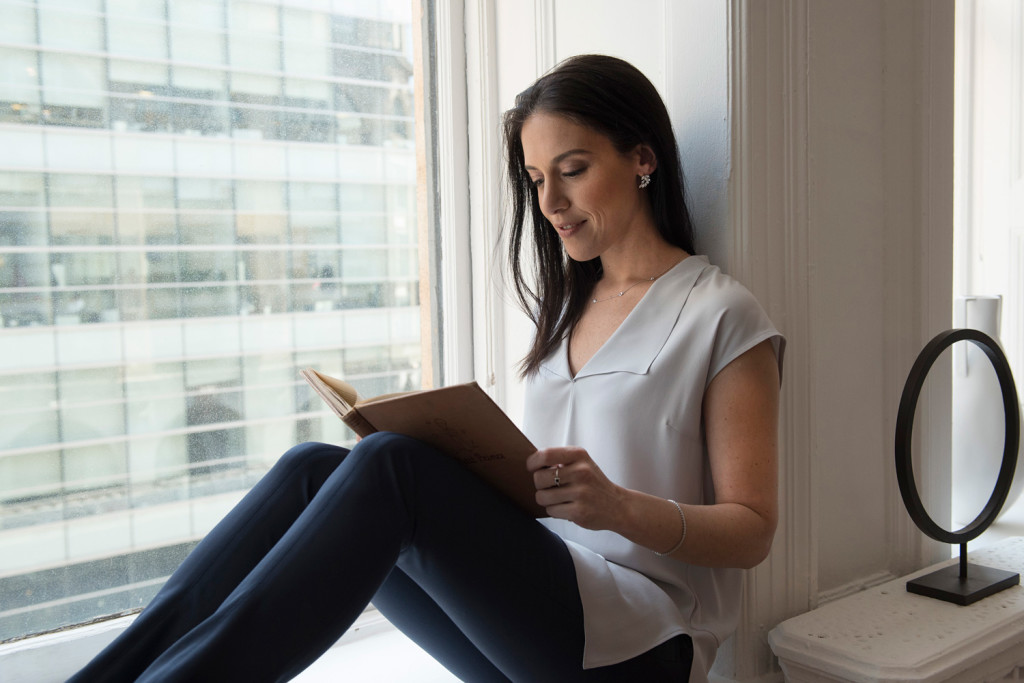
Amanda wears the Huston 2.0 top (new color coming soon!) with the Foster pant in monsoon.
MY OTHER FAVORITE TURNING POINT in my life came three years later. It was January 14, 2011, and my ex-husband and I had finally decided to separate. It was a gray, horrible day, and I remember thinking, Aside from my children, I need to strip myself down to nothing. I need to start over—my identity, how I set up my life and my finances. I don’t even think I’m cut out for relationships at all. I was in a dark, nasty place. I pulled out of the driveway to go buy a car so that I could leave—our car belonged to my ex-husband—and I was sobbing. Then I looked out the window, and there was this guy named Jordan, who had been my awkward friend in Hebrew school. I pulled over, still crying, with a cigarette hanging out of my mouth. He was like, “Oh my god, Mandy! Are you okay?” And I was like, “No, I’m getting divorced.” We had a drink that night. A serious relationship was the last thing I wanted at the time, but he loves and accepts me for exactly who I am, and we’re best friends. We’ve been together for six years now, and I get to be my full self with him.
ONE OF THE BEST THINGS about Jordan is that he doesn’t want me to change anything about myself. For example, we’re both in agreement that we don’t want to live together. We both have two kids, separately, and we have different styles when it comes to how we set up our houses. We want our relationship to remain purely romantic, and not become domestically integrated. We’re totally psyched that we get to run our lives how we want, and come together in all the ways that work and not in the ways that don’t. Also, he’s always cheering me on. A lot of the men I’ve dated were a little bit competitive with me, or at least intimidated, and never super excited for my accolades. That’s not the case with him.
THE SOFTWARE BUSINESS I HAD throughout my twenties was an easy way to make a lot of money, and I loved our clients, but it was never my be-all, end-all. I wanted to do something big and impactful. I was still running it when I started DailyWorth in 2009; I’d been studying DailyCandy for years prior, so I had familiarized myself with email as a business unit. It took me two years to get to the point where we had enough revenue and angel capital to pay myself a salary. I tried to hire someone else to run the software business, but that didn’t work, so I just shut it down.
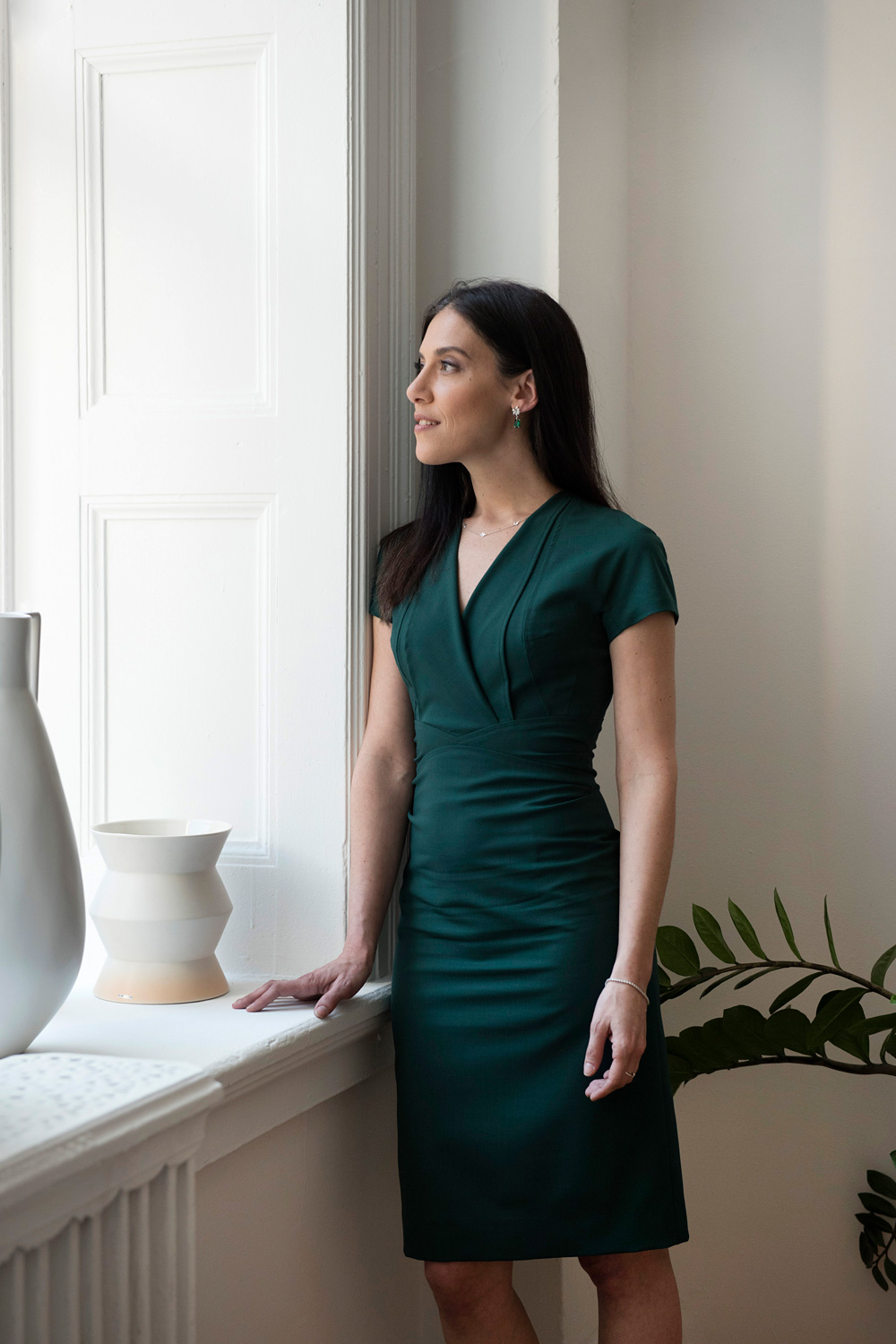
Amanda wears the Emma dress in viridian.
DELEGATING HAS NEVER BEEN A PROBLEM for me. Because I knew DailyWorth was scalable from the start, and I didn’t know much about personal finance, I gave a journalist in my neighborhood three percent of the company to write the first six months’ worth of content for free. All I did was focus on the business side and scaling the email, not on the content. I just focused on getting the delivery mechanisms in place and growing.
TOPPING ONE MILLION SUBSCRIBERS was a big win. It took six years, but we did it. It felt particularly great after all the negative shit I’d seen—the venture capitalists who would use my pitch meetings as a chance to hit on me. One asked me why I didn’t want to just be taken care of. Another told me women aren’t interested in money and just like to spend it. But that’s what social disruption looks like.
I WORK ALL THE TIME, but burnout never feels like a risk now, because I get to live my life by my own design. Burnout happened when I was busy doing things I thought I had to do. Now I just do what I want to do. I’m like a spoiled child, at age 39! But really, it’s because I’ve learned to live on my own terms, and not worry about pleasing other people.
Photos by Liz Clayman.





